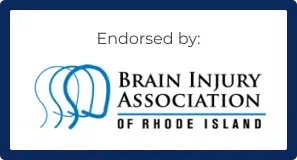Traumatic Brain Injury Resources
After a traumatic brain injury (TBI), you may be unsure where to turn for information and advice. We’ve curated a list of traumatic brain injury resources to help TBI patients and their caregivers learn more about TBIs, connect with support groups, and meet others who have been through a similar situation.
Dealing with a traumatic brain injury (TBI) can be challenging, and recovery takes time. It’s common to feel isolated and unsure of what to do next, especially if you don’t know anyone who’s been through a similar journey.
Fortunately, resources are available to help you learn more about TBIs, get advice on managing life after a TBI, and connect with others who have suffered a brain injury. There are also resources for caregivers that help them understand and cope with the demands of caring for a person with a traumatic brain injury.
The list of traumatic brain injury resources included below is not exhaustive. Instead, we’ve handpicked a few of the most helpful resources to guide you through your journey to recovery. One Support Group noted below, the Brain Injury Association of Rhode Island, is of particular note. Marasco & Nesselbush is proud to have partnered with BIARI to create a new resource on legal remedies for individuals who have suffered TBIs.
Educational TBI Resources
We have provided plenty of information about traumatic brain injuries on our website. We encourage you to take advantage of this content to learn about the following:
- Traumatic brain injury risk factors
- Traumatic brain injury symptoms
- Traumatic brain injury treatment
- Traumatic brain injury recovery
If you’d like to dive deeper, here are additional educational resources that may be useful:
- The Centers for Disease Control and Prevention (CDC) has an extensive resource page on TBIs.
- Brainline offers information about TBIs specifically geared toward military veterans and their families.
- The National Institute of Neurological Disorders and Stroke (NINDS) offers educational content on TBIs and information about current research studies that are being done.
- Virginia Commonwealth University’s National Resource Center for TBI has several articles about traumatic brain injuries.
Resources For Patients
If you’ve experienced a TBI, you may be looking for ways to manage your life. Finding a job or returning to school can be particularly challenging after a TBI.
- The Job Accommodation Network can help you navigate your return to work after suffering a traumatic brain injury and explain the laws regarding workplace accommodations.
- The Mayo Clinic created a resource guide for employers, “Understanding Brain Injury,” to teach them how best to support employees with a TBI. Consider sharing this guide with your employer.
- If you plan to enroll in college after your TBI, you may qualify for a scholarship for people with disabilities. The College Grants Database is a great resource for finding and applying for these scholarships.
- The Administration for Community Living, administered by the U.S. Department of Health & Human Services, integrates people with disabilities into the community and connects them with the resources they need.
- The Academy of Cognitive and Behavioral Therapists is a nonprofit organization that “supports continuing education and research in cognitive therapy, provides a valuable resource in cognitive therapy for professionals and the public at large, and actively works towards the identification and certification of clinicians skilled in cognitive therapy.” Through its website, you can find a certified cognitive therapist.
- If you’re considering applying for Social Security Disability, you can learn more about the specific requirements for the program for people with TBI directly through the Social Security Administration. (Marasco & Nesselbush is one of the leading Social Security Disability Law firms in New England. Our SSDI attorneys can help you navigate the challenging process of seeking SSDI benefits).
Resources For Caregivers
It can be challenging to be a caregiver for a person with TBI. You may be looking for advice on managing issues and supporting your loved one’s healing. It’s also important to consider your own well-being and take care of yourself.
- The Brain Injury Association of America’s Caregiver Information Center provides helpful articles and advice.
- The TBI guide for families created by Mayo Clinic explains what you can expect after a TBI and offers helpful tips for caregivers.
- The Family Caregiver Association has resource centers on Caring for Yourself and Caring for Another. This organization is not specific to TBI. It offers general support for caregivers.
- The University of Alabama at Birmingham’s In-home Cognitive Stimulation Guidebook offers activities and exercises of varying levels of difficulty to “stimulate thinking skills” and support cognitive recovery in people with a TBI.
- If you’re a parent of a child with a TBI, the Office of Special Education Programs provides insight into how the school system can support your child’s education.
- The Center for Parent Information and Resources has an extensive library that can help parents of kids with traumatic brain injury learn more about how to support their child’s education. Resources are available in English and Spanish.
Support Groups
It can be beneficial to meet others who have been through the journey of TBI recovery. There are support groups available for both patients and caregivers. Some meet in person, while others meet virtually.
- The Brain Injury Association of America lists TBI support groups by state.
- The Brain Injury Association of Rhode Island connects TBI survivors and their caregivers in our state. Both virtual and in-person support groups are available for Rhode Islanders who have been affected by TBI.


$4,500,000
Recovered for a client who sustained a traumatic brain injury in a car crash.
DO I HAVE A CASE?
If you think you may have a TBI case, contact us now for a FREE consultation